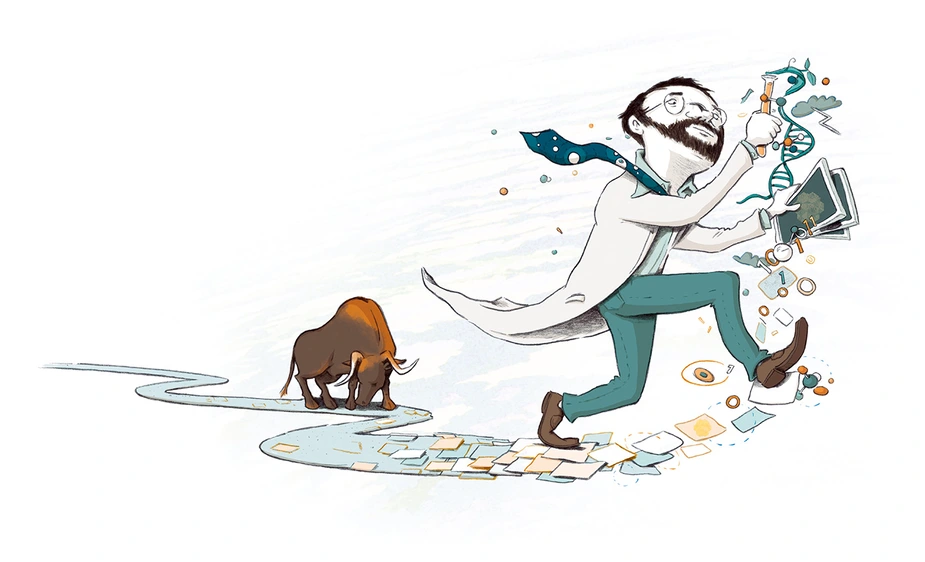The post-growth myth
The qualitative aspect of growth is making the apocalypse obsolete. Essay by Peter Heller
The critics of economic growth are among its largest profiteers. After all, they are excessively benefitting from the blessings of modernity by using them to spread their message. The stars of the industry jet tirelessly from one luxurious conference room to the next to meet top-level managers and politicians for excellent wine and hors d'œuvre. What a lush setting for bloviating about the post-growth world, where economic activity is based on consumption efficiency not production efficiency. After all, the latter is responsible for the continuous increase in world consumption and thus for the looming apocalypse from climate change to the depletion of biogenic and mineral resources.
This fixation on private consumption and the subsequent calls for individual sacrifice on all levels is understandable. Indeed, it were highly problematic for our planet if a considerable proportion of mankind took on a lifestyle on par with that of the bestselling authors of sustainability. At least, and this is an important limitation, if this occurred on our current level of development. Official statistics measure growth in terms of an increase in gross domestic product (GDP), which also omit one part of the story. Economists lack suitable metrics to describe the increasing utility value of any type of consumer goods. For this reason, this type of value is often discounted and thus ignored by the critics of unlimited growth. This is a seminal omission.
The GDP does not care if a million typewriters are made and sold or a million computers. It only cares about sales. The GDP also does not care whether we use candles, light bulbs or light diodes to illuminate our houses, streets and town squares. It would increase regardless of whether we build horse carriages or cars. For the users as well as the environment, however, there is a huge difference. Wealth is generated not only by more efficient but also more effective products. More and more people consuming the more of the same stuff should not be labelled as progress. The most important drivers of growth are novel ways to satisfy needs with more efficient tools and methods. This is the key to successful innovation.
Successful innovation can pulverise all the limitations we put on our development by merely following the inevitability of current trends. We do not have to kill whales to get our hands on lamp oil. There is no need to fell trees to build ships. Earth’s mineral resources will not burn out because more effective mining technologies will enable us to discover new sources. It would come as no surprise if we soon started tapping extra-terrestrial sources on moons and asteroids. We will not overstrain earth’s biological capacities because we have the capacity to increase our agricultural productivity many times over. Moreover, we might start producing our food in artificial environments anyway.
Although this qualitative aspect of growth renders all the dark omens obsolete, the sceptics of growth have no reason to be afraid. The apocalypse is simply too entertaining.
Peter Heller holds a PhD in astrophysics and works as a strategic advisor and trend researcher.
